19-year-old Thomas Evans said that photography helps him to take power back during his toughest time.
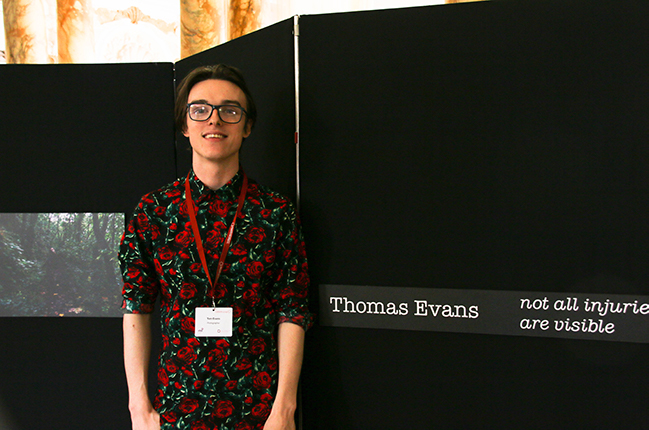
Walking out of the shower with his hair dripping wet, Thomas Evans pressed the button of his camera placed on the Harry Potter books stacked at the end of his bed. Within a few seconds, a self-portrait was done, where his face went blank in front of an empty wall.
For hundreds of moments, Thomas took photos of himself like that as a way of battling with depression. He never thought his work could be an exhibition sponsored by Arts Council of Wales.
“They’re all purely capturing how I was feeling the second that the camera went off,” said he. “It’s the idea of a survival instinct. I just did it because I had to.”
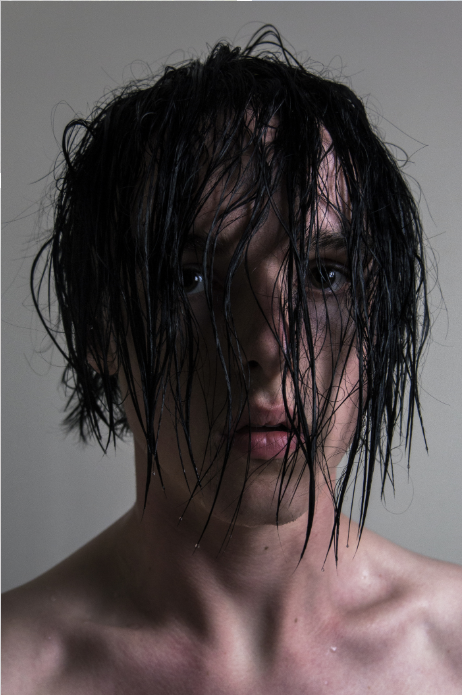
The photography work was exhibited chronologically, telling the 19-year-old’s plight of living with depression. Some of them are raw capturing with blank expressions and colorless background, while some of them are metaphoric with distorted or invisible body shape. Emptiness. Void. Breathlessness. Decay. The signals released by these photos led to the unseen injuries of Thomas’s toughest time.
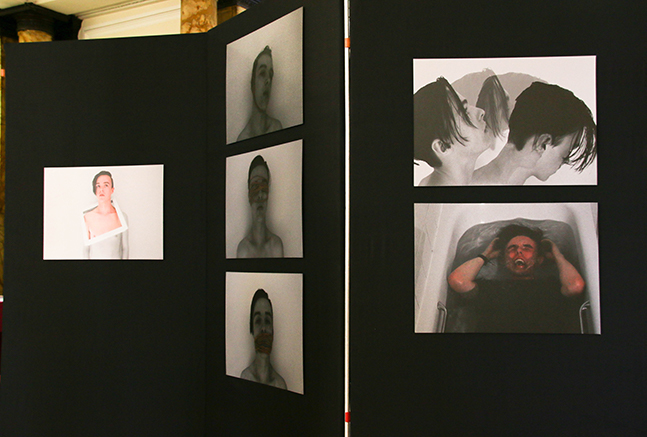
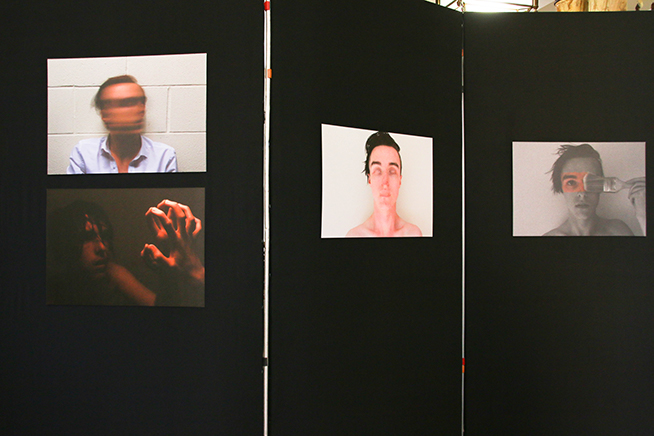
Thomas did fantastic grade at school with nearly perfect attendance. Biology and Chemistry are his passion since schooling, and he thought he was set up to pursuit them. “I was like in a starship at GCSE and school was my absolute life.” Everything went smoothly on his track until the depression pressed a sudden pause.
“It’s like a switch went off in my brain. It was so quickly switched from me being my normal self.” He said he was suddenly incapable of comprehending life anymore. He took the school bus. He sat in the lessons. He secluded himself in support room all day. He couldn’t talk with people, and didn’t remember if anyone has talked to him. “I was going from person to person and all anyone could ever say to me was I’m not qualified. I had to go to that process of trying to find someone who was qualified and who was able to help me but that was a long period,” said Thomas.
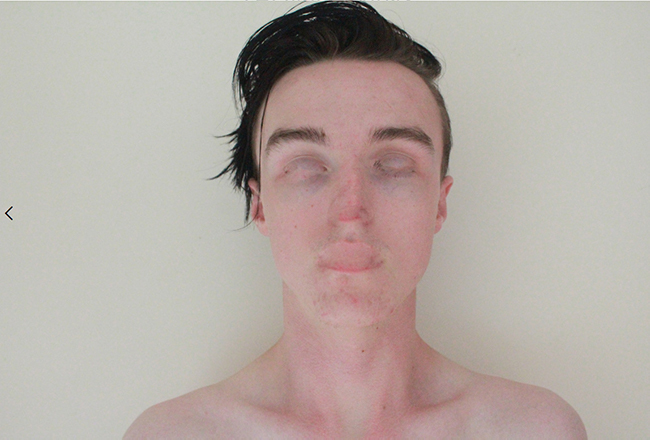
He felt himself being a body moving through rather than a human with feelings and emotions. Life was switched to a simply cycle rotating from days to nights, where he got lost while contemplating things around. During the height of his depression, he usually sat silently on the beach for the whole day, as ocean is where he could find peace and non-interruption. “When I’m stuck in school, I need to get out to the beach. It was just me needing to kind of survive.”
It was until he took up photography that he saw the light in tunnel. “Photography was my way of control and it was my way to kind of take my power back and to know that no matter how bad I’m feeling, I’ll always have a camera and I’ll always be able to do what I do,” said he.
Life were peaks and troughs. At some point, he felt depression was his protection. “I was so used to this depressive state. Part of me really want to just stay in this really dark, devastating lifestyle.” Sometimes, He was struggling for pretending to be recovered in front of his parents. “I didn’t want to burden them with my struggles again like I did before, as they were completely count on my experience after that. I was trying to give them a break.” But no matter how life was, he could literally be himself in front of the lens.

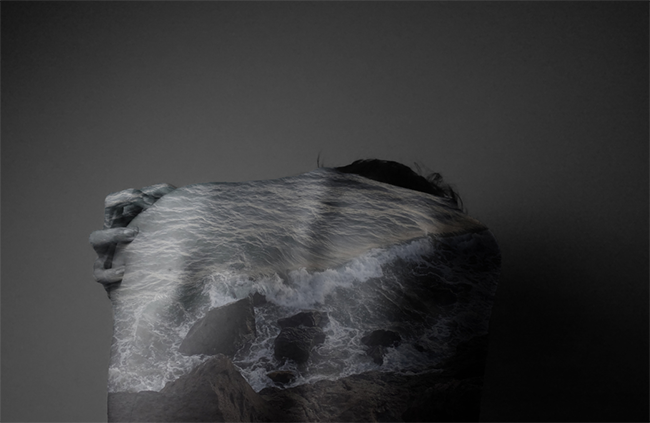
He gradually took control of his depression. The last image of his exhibition is a portrait of him holding sticks on a country road with half of his body disappeared. He said the levitating stick is a symbolic of the depression overwhelming himself, but he could hold it still in the halfway, not allowing his body to be completely erased. “It’s meant to represent that I have control over how much I love for my symptoms to affect me.”
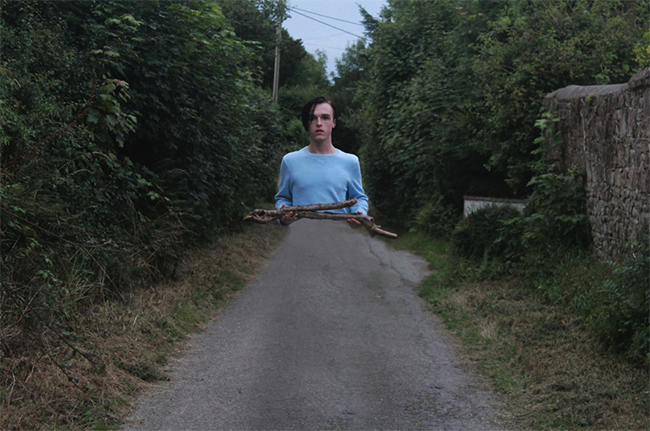
Thomas returned school eventually and finished his A-level courses in three months. Afterwards, he applied for US liberal art colleges and was awarded the full scholarship from Bennington College, becoming the first one in his family to receive tertiary education. “There is a belief within society whether conscious or subconscious that your postcode defines your future and frankly to me that’s completely false.”
Thomas is now in his gap year, earning the fund for his study and engaging in various activities of mental health support.
“I’m quite comfortable with the fact that my depression will never fully go away.” He said he got a lot inspiration from John Keats, a poet alienated in the era sparing no efforts figuring out the world. He fancies a phrase from the poet called “negative capability”, which favors the beauty of unknown and uncertainty.
“By recognizing your own powerlessness, you’re actually taking power back. Once you have gained a little bit of power back, it gives you the leverage to progressively take more power back.”
